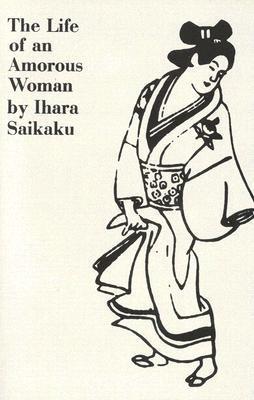Related Research Articles
This article contains information about the literary events and publications of 1692.
This article contains information about the literary events and publications of 1687.
This article contains information about the literary events and publications of 1686.
This article contains information about the literary events and publications of 1685.
Nahum Tate was an Anglo-Irish poet, hymnist, and lyricist, who became Poet Laureate in 1692. Tate is best known for The History of King Lear, his 1681 adaptation of Shakespeare's King Lear, and for his libretto for Henry Purcell's opera, Dido and Aeneas. He also wrote the lyrics to a Christmas carol, "While shepherds watched their flocks".

Ihara Saikaku was a Japanese poet and creator of the "floating world" genre of Japanese prose (ukiyo-zōshi).
The Sensualist is a Japanese adult animated historical drama film based on part of the 17th century novel of the same name by Ihara Saikaku.
Ukiyo-zōshi is the first major genre of popular Japanese fiction, written between the 1680s and 1770s in Kyoto and Osaka. Ukiyo-zōshi literature developed from the broader genre of kana-zōshi, books written in the katakana vernacular for enjoyment, and was initially classified as kana-zōshi. The term "ukiyo-zōshi" first appeared in 1710 in reference to amorous or erotic works, but the term later came to refer to literature that encompassed a variety of subjects and aspects of life during the Edo period with the most common being that of the ordinary townsperson. Books of this genre included ukiyo-e illustrations often made by the most prominent artists at the time. The most prominent author of ukiyo-zōshi was Ihara Saikaku, whose works were not regarded as high literature at the time, but became popular and were key to the development and spread of the new genre. Saikaku was preceded by and worked at the same time as many other authors such as Shogetsudo Fukaku and Ejima Kiseki, all of which helped to shape ukiyo-zōshi and inspire future genres. Ukiyo-zōshi continued until the end of the eighteenth century, but its quality steadily declined. Overall, the genre lived for less than a century and died from conventionalization as well as a lack of new ideas for stories.
Nationality words link to articles with information on the nation's poetry or literature.
Events in the year 1761 in Norway.
Nationality words link to articles with information on the nation's poetry or literature.
Baka means "fool", or "foolish" and is the most frequently used pejorative term in the Japanese language. The word baka has a long history, an uncertain etymology, and sociolinguistic complexities.

The Life of an Amorous Woman is a Japanese short novel by Ihara Saikaku which depicts the ukiyo of Edo period Japan. It was first published in Osaka in 1686, consisting of six volumes each divided into four chapters. The Life of an Amorous Woman is written in the first person from the female protagonist's perspective, and shows, in contrast to Ihara's previous works, the darker and materialistic side of kōshoku ("passion").
Events in the year 1682 in Norway.
Joseph Williams was an English stage actor of the seventeenth and early eighteenth century.
Thomas Gillow was an English stage actor of the Restoration era. His name was sometimes written Gilloe or Gillo.
John Wiltshire was an English stage actor of the Restoration Era. He joined the King's Company in 1675, before transferring to the rival Duke's Company in 1679 possibly as a replacement for Matthew Medbourne who was arrested in the Popish Plot and subsequently died in Newgate. From 1682 until his death he was part of the merged United Company. According to the autobiography of Colley Cibber he subsequently joined the English Army as captain and was killed in action fighting with William III's forces in Flanders during the Nine Years' War. His surname is also sometimes spelled as Wilshire.
Thomas Percival or Percivall was an English stage actor of the seventeenth century. He was a member of the Duke's Company from 1671 to 1682 and then the merged United Company until 1686. Throughout his career he was confined to playing supporting roles, never graduating to major parts. He was the father of the actress Susanna Verbruggen. In 1693, following his retirement from the stage, he was arrested for coin clipping, a capital crime, for which he was sentenced to hang at Tyburn. The intercession of his daughter with Mary II saw his sentence commuted to transportation, but before he reached Portsmouth he died of natural causes.
Martin Powell was an English stage actor of the seventeenth century. Powell was a member of the King's Company from 1669 onwards at the Theatre Royal, Drury Lane in London. He was one of several actors who briefly left for Scotland in 1678 after a dispute with the management, before returning to Drury Lane. In 1682 he joined the merged United Company. Billed throughout his career as Mr. Powell, some of his later appearances can be confused with those of his son George Powell.
References
- ↑ Milhous, Judith. "United Company Finances, 1682–1692". Theatre Research International. 7: 37–53.
- ↑ "Huitfeldt, Birgitte Christine, 1682-1761". Dansk biografisk Lexikon. Retrieved June 1, 2016.
- ↑ "Birgitte Christine Kaas". Store norske leksikon. Retrieved June 1, 2016.